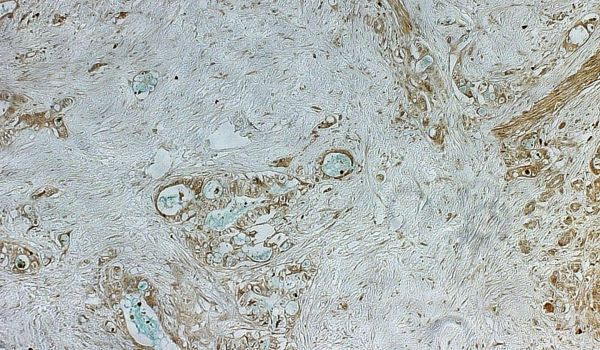Scientists studying a highly cancer-prone family have identified a rare, inherited gene mutation that dramatically raises the lifetime risk of pancreatic and other cancers.
The discovery of the previously unknown mutation, reported in Nature Genetics by investigators from Dana-Farber/Brigham and Women’s Cancer Center, could lead to routine testing of individuals with a strong family history of pancreatic cancer to determine if they carry the mutation, occurring in the gene known as RABL3. If so, they could be screened to detect pancreatic cancer in an earlier, potentially more treatable stage. “There is evidence that catching pancreatic cancer through screening of high-risk individuals may improve outcomes,” said Sahar Nissim, MD, PhD, a cancer geneticist and gastroenterologist at Dana-Farber Cancer Institute and Brigham and Women’s Hospital, and first author of the study. In addition, their relatives could choose to be tested to learn if they carry the mutation. Senior author of the report is Wolfram Goessling, MD, PhD, Chief of Gastroenterology at the Massachusetts General Hospital.
About 10 percent of pancreatic cancers have a familial pattern, and in most cases the causative genetic flaw isn’t known, although some mutations have been identified. One inherited mutation that can predispose individuals to pancreatic cancer occurs in the gene BRCA2, the gene also known to cause some breast and ovarian cancers. The newly identified mutation in the gene RABL3 similarly increases the likelihood that cancer will develop during the person’s lifetime.
Read more at: Dana-Farber Cancer Institute
Pancreatic Cancer Histology (Photo Credit: Dana-Farber Cancer Institute)


